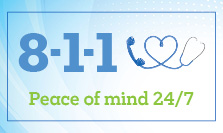Post-COVID Condition
What is post-COVID (or long-COVID) condition?
Most people with COVID-19 recover in a few weeks with no long-term problems. Some people have problematic health symptoms related to their infection that can linger for several months. These longer-term symptoms are known as post-COVID condition (also called long-COVID).
The current World Health Organization (link is external) definition of post-COVID is the following:
- Symptoms occurring at least three months after probable or confirmed SARS-CoV-2 infection.
- Symptoms must last for at least two months and cannot be explained by an alternative diagnosis.
- Symptoms may be new onset following recovery from acute SARS-CoV-2 infection or persist from the initial illness.
- Symptoms may fluctuate or relapse.
- Common symptoms include fatigue, shortness of breath, and cognitive dysfunction but also others, and generally have an impact on everyday functioning.
- Some people report that their symptoms reduce their productivity, affect their quality of life, make it difficult to work, and properly care for themselves.
The prevalence, causes, risk factors, and effective treatments for post-COVID condition are still being investigated. This information page will be updated as more is learned about post-COVID condition.
What can I do if I have symptoms of post-COVID condition?
Self-care is a common first-line treatment for post-COVID. If you are experiencing symptoms of post-COVID condition, there are techniques you can try to help you feel better. It is important to remember that your recovery journey may be different than others and to be kind to yourself throughout recovery. The suggestions below are borrowed with permission from HealthLink BC and the BC Provincial Health Services Authority.
Fatigue
- Return to activities slowly. It takes time to get stronger. Pace yourself.
Shortness of Breath
- Breath training can help you take deeper breaths and breathe easier. Methods include pursed-lip breathing and breathing with your diaphragm.
Cough
- Prop up your head with pillows to help control coughing.
Trouble Thinking or Concentrating ("Brain Fog")
- Be patient with yourself. Use sticky notes and calendars to remember tasks and events.
Depression or Anxiety
- Regular activity, like walking, may help. Get plenty of sleep. Avoid drugs and alcohol. Consider talking to a counsellor. Take medicine as prescribed.
Muscle or Joint Pain, or Headaches
- Stretching may ease muscle pain. Ask your health care provider if you can take over-the-counter pain medicine.
More ideas for symptom management can be located on British Columbia’s website on Living with Post-COVID symptoms (link is external) and Nova Scotia’s website on My COVID Recovery (link is external). These resources include fact sheets and videos.
What if I need more help managing my symptoms of post-COVID condition?
You may need to be assessed by a health care provider to determine if you need additional therapies or medications to help manage your symptoms. Reach out to a health care provider for guidance. If you do not have a health care provider, the Virtual Health Care for Islanders without a Primary Care Provider Program is available and free to use. Health PEI also has many services that can be accessed directly by community members.
For a life threatening emergency, please call 9-1-1.
Material adapted from HealthLink BC, BC Provincial Health Services Authority and Nova Scotia Health Authority.

